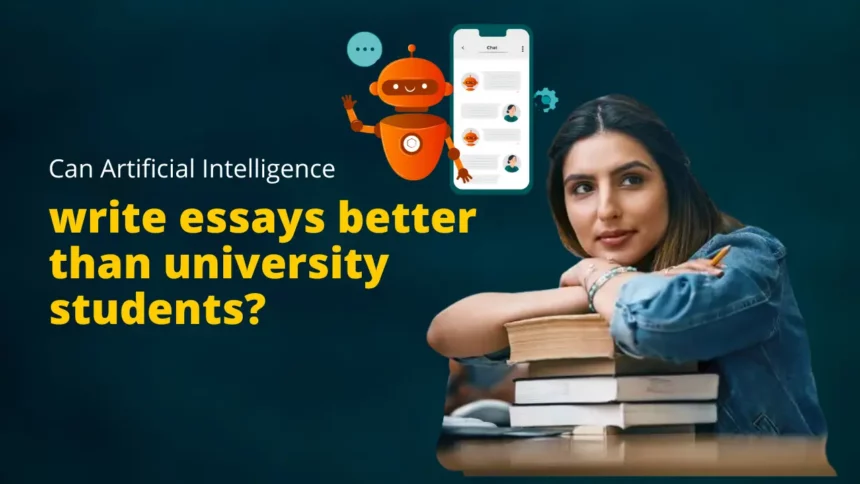The esteemed Steve West, vice chancellor of the University of the West of England, has warned students sternly against utilizing AI technology to produce essays, reminding them of their intellectual capabilities: “Students – you possess superior intellect, eschew such shortcuts.”
Mr. West has stressed that employing AI technology for such purposes would amount to “assessment fraud.”
The conversational AI chatbot ChatGPT has become popular among users, including students, teachers, creatives, and developers. As per a Washington Post report, a high school senior from the Midwest reportedly employed the chatbot for a computer science quiz and a coding assignment. Meanwhile, a Twitter user allegedly used ChatGPT for an SAT exam.
Despite the controversy and hype surrounding ChatGPT, the question remains: can it outperform university students Artificial Intelligence write essays?
Artificial intelligence chatbots vs. university students
Pieter Snepvangers, a former scholar from the prestigious University of Bristol, conducted a pioneering experiment utilizing ChatGPT to address an essay question he had already finished in the past. According to reports, Snepvangers posed ten queries to the bot and received a 3,500-word essay, which he took 10 minutes to format for the experiment.
When Snepvangers composed the essay, he was awarded a 65% score. Conversely, when collected by ChatGPT, the essay’s grade was 53%, just 12 marks short of his initial grade. “I received a grade of 65%, and it took me two weeks to finish it. However, ChatGPT missed the mark by 12 points – that’s alarming,” remarked Snepvangers.
One of his previous lecturers graded Snepvangers’s essay, which he completed with artificial intelligence, at 53%.
The lecturer, who was aware that the essay was created with the assistance of a machine, reported that if Snepvangers had included in-text references, his essay would have scored either a high 2:2 or a 2:1. “The English language was compelling,” Snepvangers stated, “but it evaded answering the question.”
Comparing the student’s essay with the AI-generated one highlights a significant distinction. Machines, such as ChatGPT, produce perfect outputs with identical mistakes throughout the output.
According to academics, perfect spelling and the lack of grammatical errors are clear indications that students may be employing generative AI.
The lecturer told the BBC that four of the 33 essays submitted for one module this year appeared suspicious from an AI perspective. “Do not take any risks,” West emphasizes.









